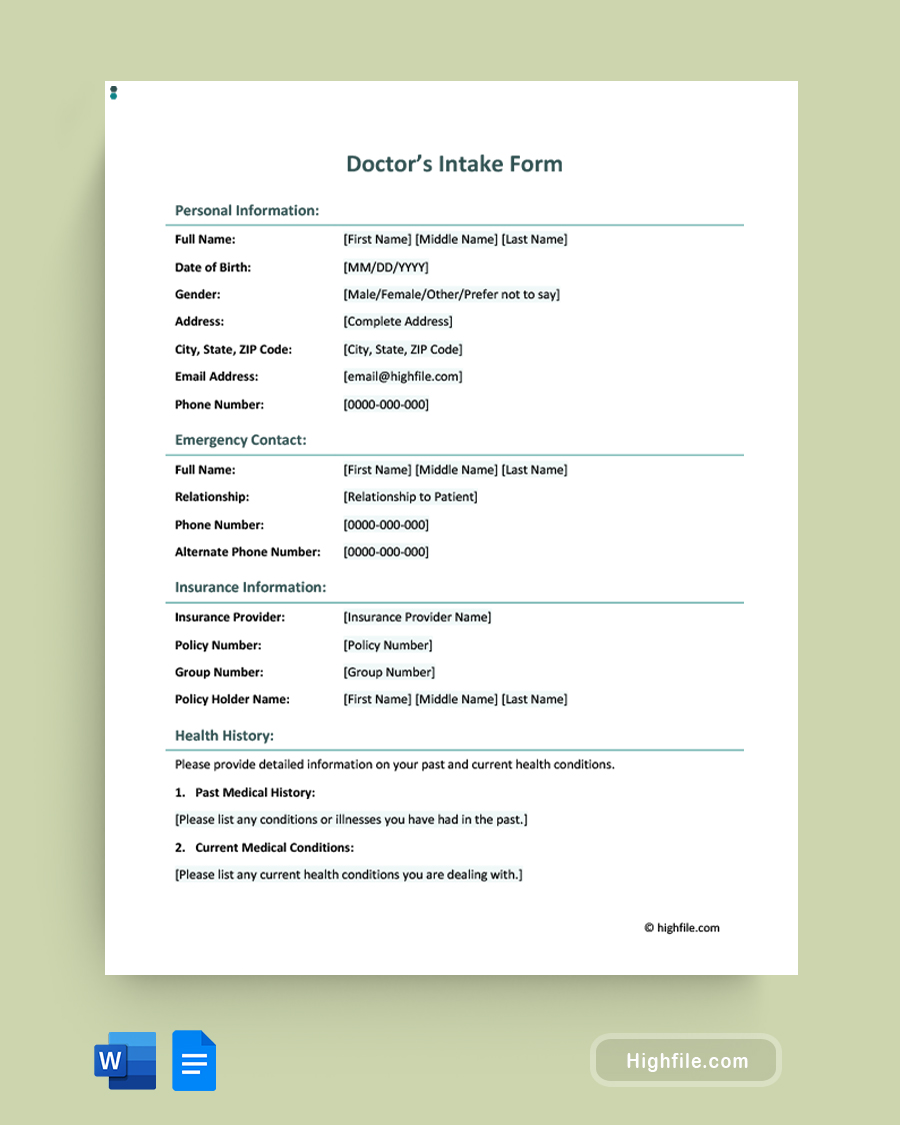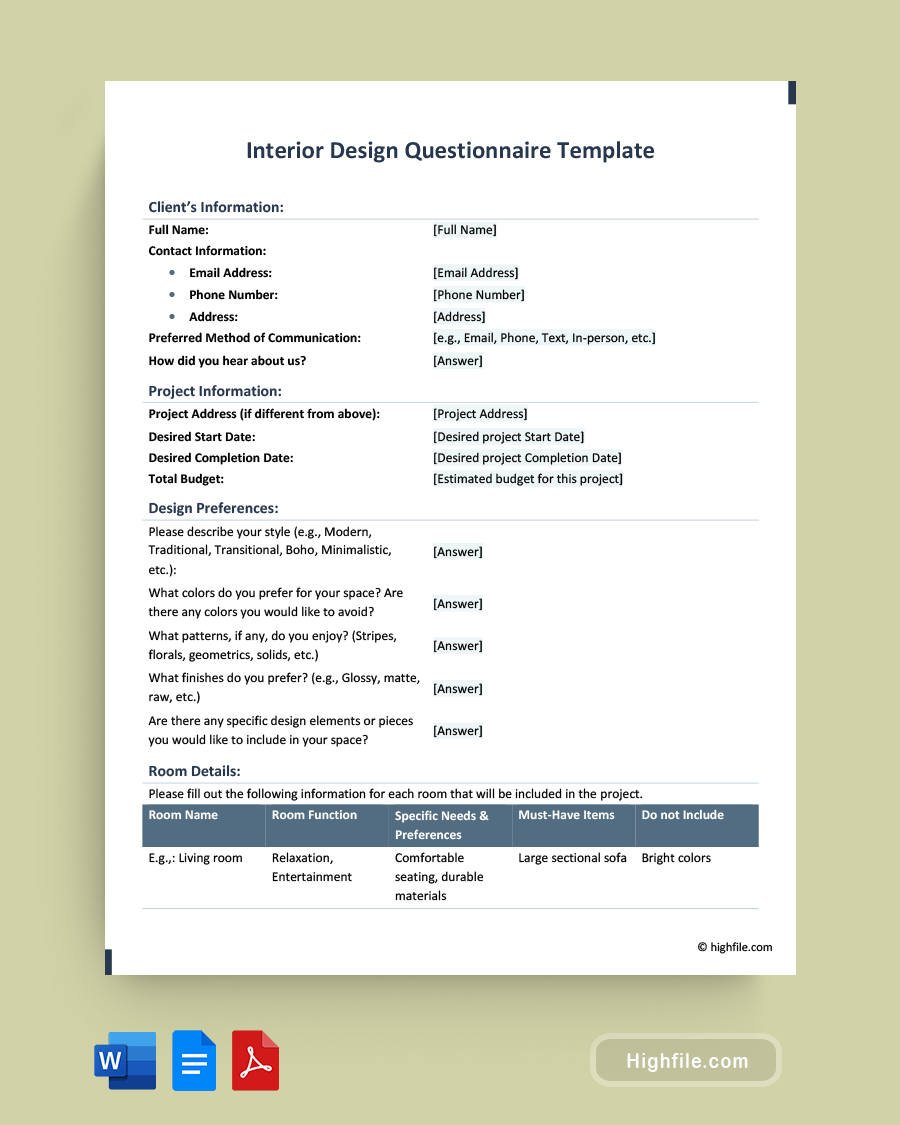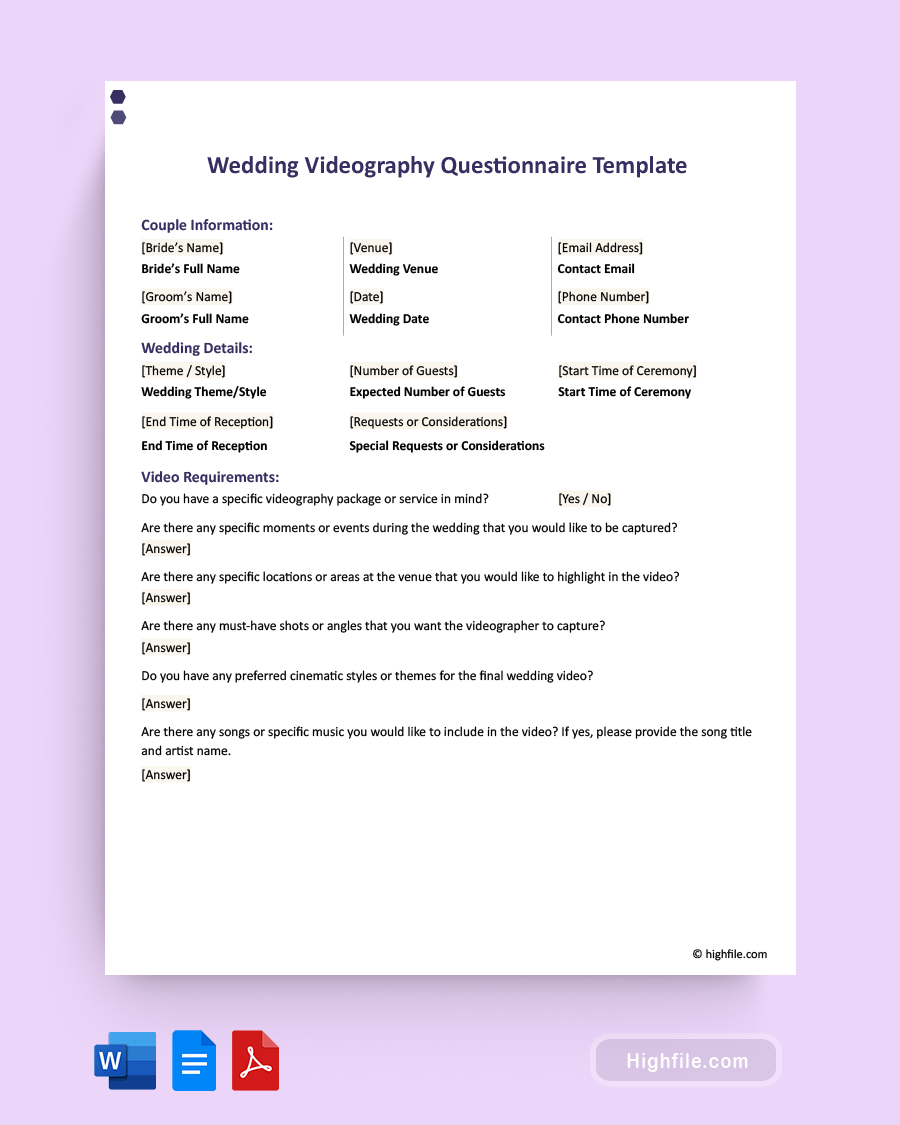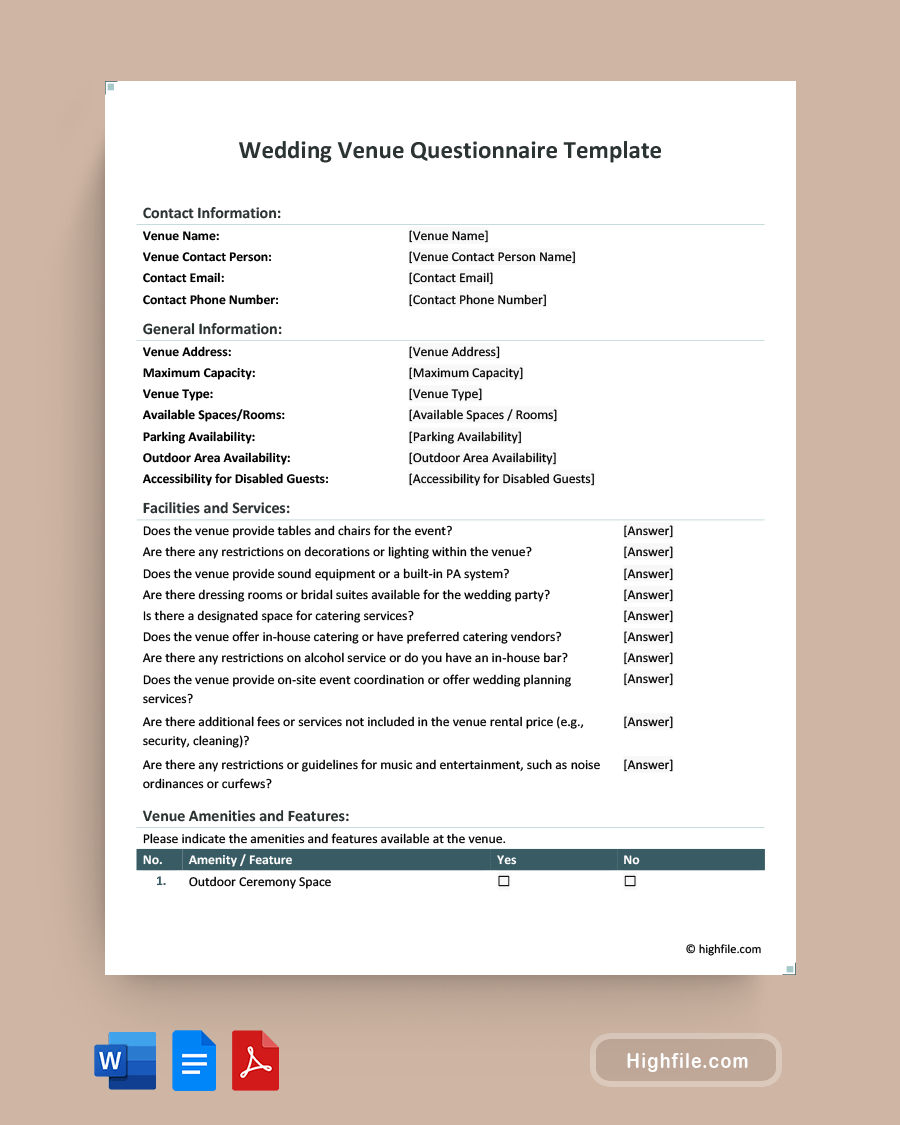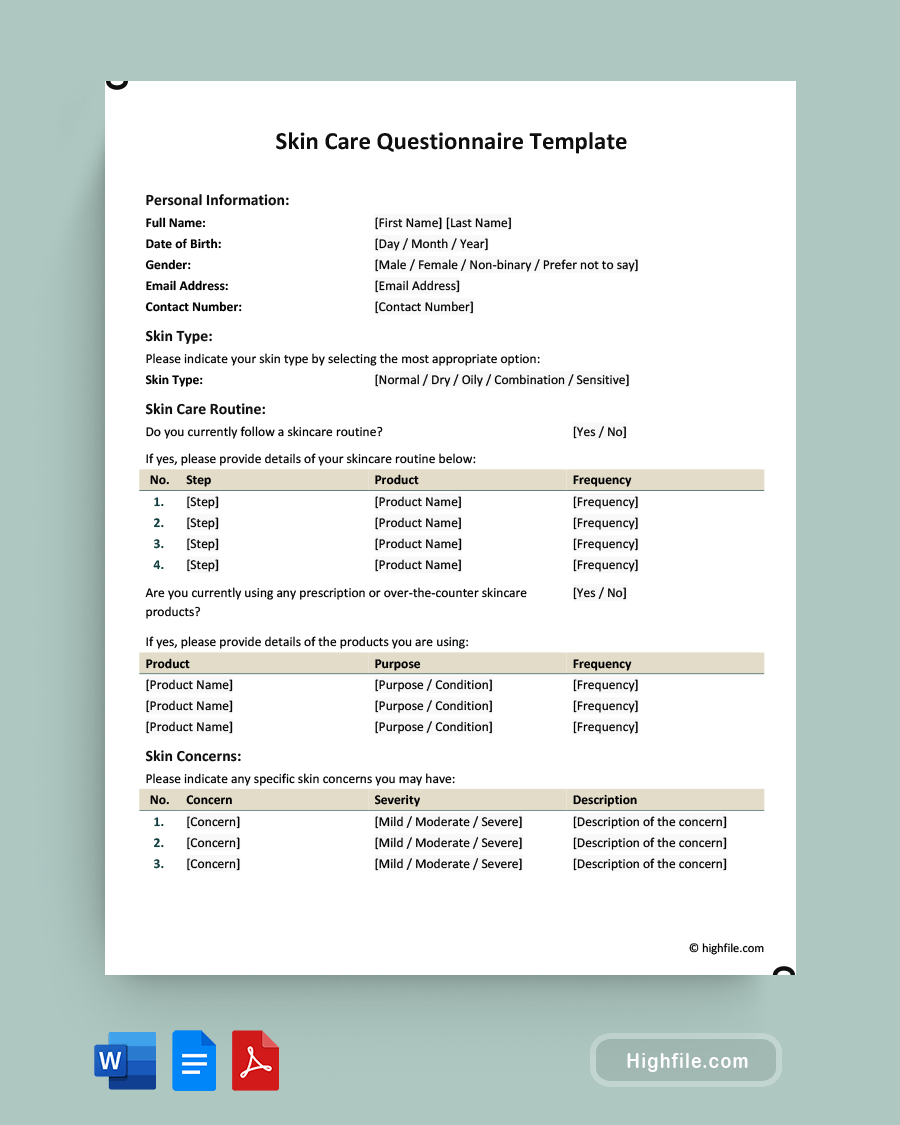Contents of the Template:
- Personal Information Section: Captures vital details like name, DOB, gender, address, email, and contact numbers.
- Emergency Contact: Ensures there’s a point of contact besides the patient.
- Insurance Information: Essential for billing and insurance claims.
- Health History: Allows for a deep dive into the patient’s past and current health status.
- Family History: Gains insights into potential hereditary health risks.
- Lifestyle and Habits: Understands the patient’s day-to-day habits that might impact their health.
- Review of Systems: Offers a checklist of symptoms for various systems of the body.
- Women’s Health (if applicable): Gets details specific to menstrual and reproductive health.
- Permission and HIPAA Acknowledgement: Legal acknowledgment and consent section.
- Physician’s Use: Space reserved for the physician’s notes and observations.
Why Use This Template:
- Streamlined Process: Instead of manually asking patients each detail, this form makes data collection efficient.
- Holistic View: Gathers a 360-degree perspective on the patient’s health.
- Time-Saving: Cuts down consultation time as physicians can review the form beforehand.
- Error Reduction: Structured format reduces the chances of missing out on essential information.
- Convenience: Available in multiple formats like Word and Google Docs for easy access and editing.
Ideal For:
- New Patient Onboarding: Especially useful for clinics or hospitals seeing a patient for the first time.
- Routine Check-ups: Can be given to returning patients to update their records.
- Specialist Consultations: When seeing a specialist, having a complete history helps in accurate diagnosis.
- Telemedicine: For online consultations where a physical conversation might not be possible.
- Medical Camps: Useful during health camps where multiple patients are screened in a short span.
